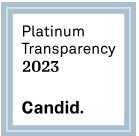Higher education is crucial to breaking the cycle of poverty. However, the rising cost of education has made getting a college degree extremely difficult for people with limited resources. Making sure that students can meet their basic needs, like food and housing, can help them succeed.
This year, there has been a greater focus on the issue of food insecurity among college students with the release of a new study that showed that half of all community college students are struggling with food and/or housing insecurity. Another study found that four in 10 University of California students do not have a consistent source of high-quality, nutritious food.
The California Department of Social Services is working with advocates across California to make it easier for eligible low-income students to receive CalFresh. At San Diego Hunger Coalition, we are working to address hunger among college students on a local level.
Wins for College Students from the CalFresh Task Force
Over the last six months, CalFresh Task Force members have created new solutions for connecting college students to food resources, beginning with CalFresh, a monthly food budget supplement. Representatives from San Diego State University’s Student Disability Services Department and San Diego City College’s Extended Opportunity Program Services (EOPS) attended our last countywide meeting on September 1, 2016, and the group discussed ways to reach students who may be struggling with hunger and may be eligible for CalFresh.
Three Recent Successes from the CalFresh Task Force:
1. Five new partnerships now connect San Diego County community colleges with organizations that help students access CalFresh:
- Miramar College and San Diego Food Bank
- San Diego Mesa College and 211 San Diego
- San Diego City College and Feeding San Diego
- Mira Costa College and Feeding San Diego
- Southwestern College and La Maestra Health Center
2. Now, local colleges have new outreach and application assistance models, including guidance for onsite CalFresh enrollment, thanks to collaboration between community college representatives and CalFresh application assistance organizations.
3. Colleges interested in opening food pantries on campus have more resources to help them get started.
What’s next?
The Hunger Coalition’s work to connect college students to food assistance continues. As these new partnerships develop, we will also move forward with our work to simplify the process for college students with disabilities to access CalFresh. In addition, we’ll work with college campus retailers to allow students to use their CalFresh benefits to purchase meals on campus using an EBT card.







